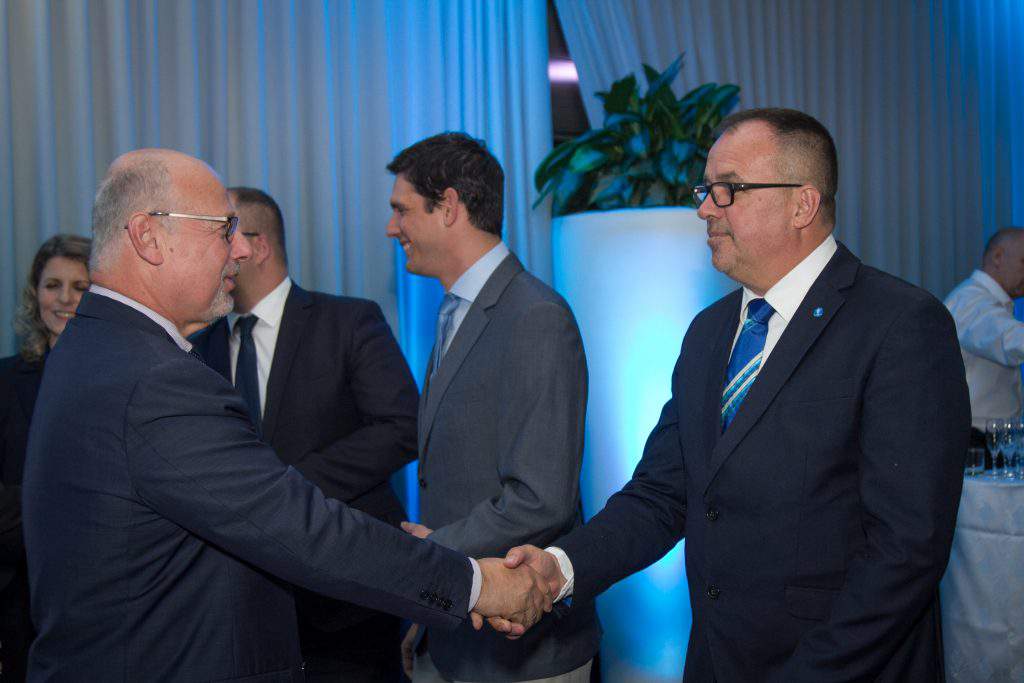Budapest will become the Capital of Sport – Interview with Sándor Balogh

Change language:
The GLOBS Magazine published an interview with Sándor Balogh, Finance Director of the FINA Aquatic Championships and President of the African-Hungarian Union which you can read on Daily News Hungary as well:
Now that the preparations for the Aquatic World Championships have reached the finish line, many may have forgotten that originally Hungary should have organised this event only in 4 years’ time and not in 2017. How have you ensured that the urgency is not reflected in the preparations?
Many may not remember, but originally Hungary was granted the right to hold the event in 2021, though when, in 2015, Mexico, for financial reasons, withdrew from organising the 2017 World Championships, Hungary stepped in. That is why we have had only two years instead of the usual six available for preparation. In order to finish everything on time, we have needed enthusiastic and devoted contributions from many people: more than 5,000 are working on the project and they are assisted by approximately 3,500 enthusiastic volunteers. The actual organising committee consists of 200 people. The main point, and also the secret of the success, is that everybody feels that they own the project and put in the best endeavours. Naturally, we also needed full commitment from the Government and Ministers Zoltán Balogh, Sándor Pintér, Miklós Seszták and Péter Szijjártó did everything they could to help us achieve our goal. Now we can say that Hungary will soon organise the greatest event in its sporting history. We usually say that these are the third largest World Championships in respect of the number of spectators and in their complexity, coming directly behind the Olympics and the Football World Championships. The events of the World Championships include swimming, water polo, synchronised swimming, diving, high diving and open water swimming. There is no doubt that the organisation of the FINA World Championships in Hungary has brought forward the launch of a number of capital investment projects that were already planned. The majority of those planned projects only needed accelerating in a concentrated manner, facilitating revival and reconstruction according to a common goal, in a co-ordinated manner. It is a long time since so many development projects were taking place at once in Budapest and that is set to continue with the implementation of the Zsigmond Kemény Programme. Budapest will become the capital of sports. Margit Island is undergoing complete reconstruction and not only the Hajós Alfréd National Sports Complex but also the Császár-Komjádi pool complex are being refurbished.
The largest project has been was the construction of the Duna Arena complex that can host 12,000 people. In the summer, the Arena will be the venue of the swimming and diving event. After the Championships, the extended stands will be demolished and passed on for ordinary ever day use. One Japanese delegation has already expressed an interest in using the stands in the 2020 Championships.
The rest will remain…
That is true. The rest of the facilities will remain here for the sport-loving residents of Budapest and for those others who are also attracted to the Hungarian capital as Budapest is the city of water, aquatic experiences and sport. The development of the country1s image and the increase of tourist attractions are among the greatest positive effects of such global sporting events. Our goal is to keep tourists coming to Hungary, both to Budapest and to elsewhere in the country for as long as possible and for that, we need programmes. The events will be adapted to, and integrated into, the other cultural activities of the city. Together we can show that Budapest is the capital of sport, culture and beauty. In addition to the FINA World Championships in Budapest, the summer offers many other exciting programmes. Those include: the Formula 1 Grand Prix, the Red Bull Air Race, the European Youth Olympic Festival (EYOF) in Győr, the Sziget Festival, the Judo World Championships and the FINA World Championships followed by the FINA Masters World Championships. In addition, the performances of the Margit Island Open Air Theatre, which is extremely close to the venues of the aquatic World Championships, also fit very well into the summer programme of events.
The events were deliberately planned to take place at emblematic venues so that the public may also learn more about our historic and cultural monuments. How much did that idea complicate organisation?
Usually, the Aquatic World Championships are held at one venue but that is not the case here. Given the short time we had available, this idea was another challenge. In addition to the sights of Budapest that surround the event venues, I must also mention the other main venue of Balatonfüred, where athletes will compete in the open water swimming. Each event will be broadcast on huge display screens and we are seeking to project our best image to the world and provide a long lasting experience for the spectators and encouragement for all the visitors to return to Hungary.






